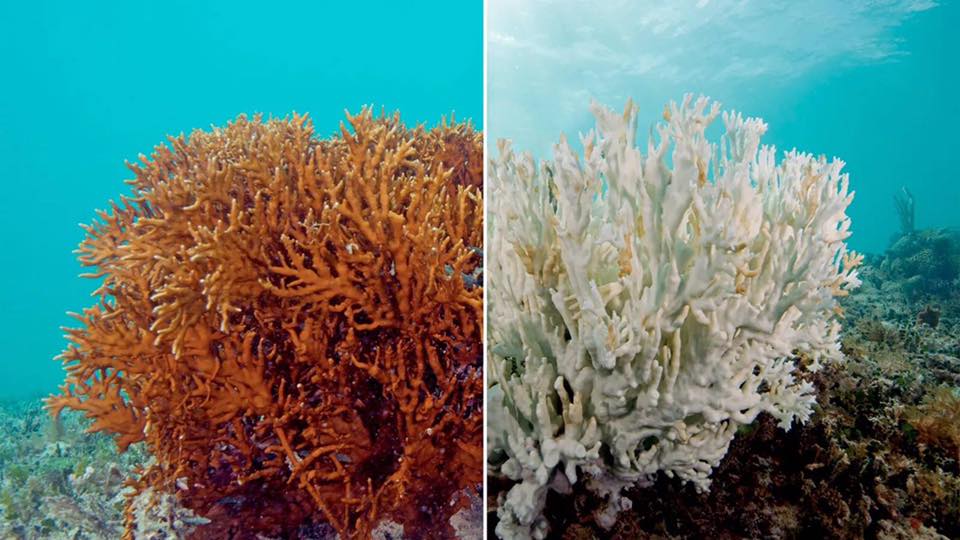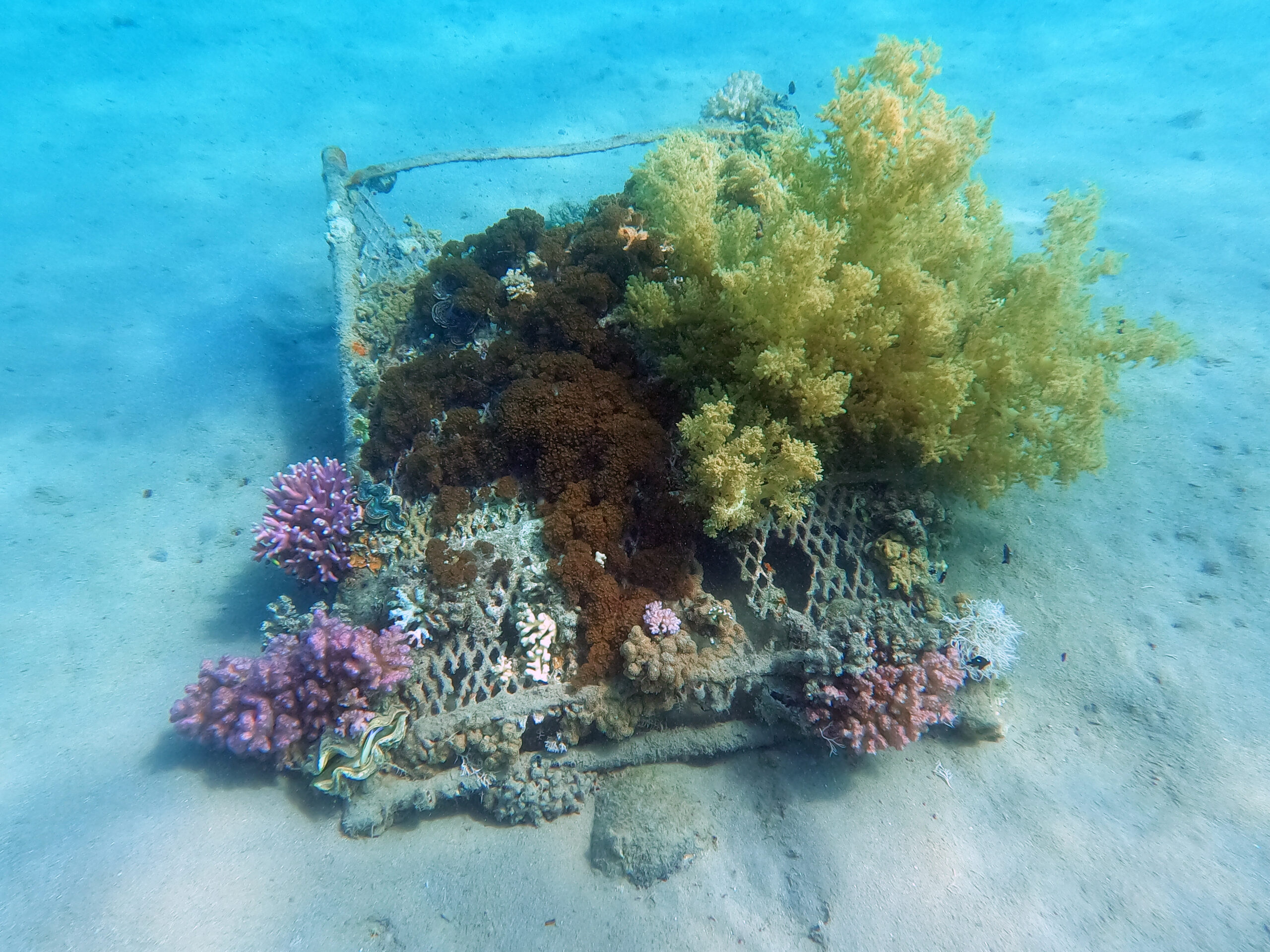The article features an image of a type of coral called “fire coral” and showcases it in both its living and dead states. Coral reefs are incredibly diverse ecosystems that support over 25% of all marine life. Unfortunately, since the 1980s, it has been observed that coral reefs around the world have been dying rapidly and inexplicably, leading researchers to initially suspect a virus was the culprit.
However, further investigation revealed that the primary killer of corals was actually temperature changes. Oceans play a significant role in stabilizing the planet’s temperature by absorbing solar heat and releasing it in a way that maintains temperature differences between morning/night and summer/winter. This allows for the survival and stability of underwater organisms including corals. Over time, these organisms have adapted to this stability. However, human activities such as carbon dioxide emissions have begun to disrupt it.
Carbon dioxide emissions from sources such as burning fossil fuels, deforestation, and industrial processes, trap heat in the atmosphere, leading to global warming. As a result, temperatures have risen by 2-5 Celsius degrees in the oceans, which is enough to kill some types of coral, including fire coral. This continuous increase in temperature is contributing to the ongoing death of coral reefs worldwide, putting the entire ecosystem at risk.
Coral bleaching is one major consequence of rising ocean temperatures. When corals become stressed due to high temperatures or other factors such as pollution, they expel the symbiotic algae that live within their tissues, causing the coral to turn white or “bleach”. If the stressor persists, the coral will eventually die. Additionally, warmer waters also make corals more susceptible to disease, meaning that once they become sick, their chance of recovery becomes slim.
It’s important to note that coral reefs are not just beautiful places for people to visit and explore. They are integral to the health of our oceans and provide essential benefits to marine life and human populations alike. Coral reefs provide habitats for countless species, protect coastlines from storms and erosion, and support tourism and recreation industries that are vital to local economies.
While pollution-induced global warming may not directly harm humans, it poses a grave threat to countless lives, particularly if icebergs continue to melt. Melting icebergs can lead to sea level rise which can eventually cause coastal flooding and other hazards. It’s important for everyone to do their part in reducing carbon emissions and making changes to help mitigate the effects of climate change.
For those interested in learning more about the subject, the documentary “Chasing Coral” from 2017 is highly recommended. It delves into the issue of coral reef degradation and highlights the importance of taking action to protect these delicate ecosystems.





